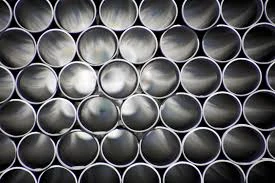
-
 Afrikaans
Afrikaans -
 Albanian
Albanian -
 Amharic
Amharic -
 Arabic
Arabic -
 Armenian
Armenian -
 Azerbaijani
Azerbaijani -
 Basque
Basque -
 Belarusian
Belarusian -
 Bengali
Bengali -
 Bosnian
Bosnian -
 Bulgarian
Bulgarian -
 Catalan
Catalan -
 Cebuano
Cebuano -
 China
China -
 China (Taiwan)
China (Taiwan) -
 Corsican
Corsican -
 Croatian
Croatian -
 Czech
Czech -
 Danish
Danish -
 Dutch
Dutch -
 English
English -
 Esperanto
Esperanto -
 Estonian
Estonian -
 Finnish
Finnish -
 French
French -
 Frisian
Frisian -
 Galician
Galician -
 Georgian
Georgian -
 German
German -
 Greek
Greek -
 Gujarati
Gujarati -
 Haitian Creole
Haitian Creole -
 hausa
hausa -
 hawaiian
hawaiian -
 Hebrew
Hebrew -
 Hindi
Hindi -
 Miao
Miao -
 Hungarian
Hungarian -
 Icelandic
Icelandic -
 igbo
igbo -
 Indonesian
Indonesian -
 irish
irish -
 Italian
Italian -
 Japanese
Japanese -
 Javanese
Javanese -
 Kannada
Kannada -
 kazakh
kazakh -
 Khmer
Khmer -
 Rwandese
Rwandese -
 Korean
Korean -
 Kurdish
Kurdish -
 Kyrgyz
Kyrgyz -
 Lao
Lao -
 Latin
Latin -
 Latvian
Latvian -
 Lithuanian
Lithuanian -
 Luxembourgish
Luxembourgish -
 Macedonian
Macedonian -
 Malgashi
Malgashi -
 Malay
Malay -
 Malayalam
Malayalam -
 Maltese
Maltese -
 Maori
Maori -
 Marathi
Marathi -
 Mongolian
Mongolian -
 Myanmar
Myanmar -
 Nepali
Nepali -
 Norwegian
Norwegian -
 Norwegian
Norwegian -
 Occitan
Occitan -
 Pashto
Pashto -
 Persian
Persian -
 Polish
Polish -
 Portuguese
Portuguese -
 Punjabi
Punjabi -
 Romanian
Romanian -
 Russian
Russian -
 Samoan
Samoan -
 Scottish Gaelic
Scottish Gaelic -
 Serbian
Serbian -
 Sesotho
Sesotho -
 Shona
Shona -
 Sindhi
Sindhi -
 Sinhala
Sinhala -
 Slovak
Slovak -
 Slovenian
Slovenian -
 Somali
Somali -
 Spanish
Spanish -
 Sundanese
Sundanese -
 Swahili
Swahili -
 Swedish
Swedish -
 Tagalog
Tagalog -
 Tajik
Tajik -
 Tamil
Tamil -
 Tatar
Tatar -
 Telugu
Telugu -
 Thai
Thai -
 Turkish
Turkish -
 Turkmen
Turkmen -
 Ukrainian
Ukrainian -
 Urdu
Urdu -
 Uighur
Uighur -
 Uzbek
Uzbek -
 Vietnamese
Vietnamese -
 Welsh
Welsh -
 Bantu
Bantu -
 Yiddish
Yiddish -
 Yoruba
Yoruba -
 Zulu
Zulu
Designing and Constructing a Fiberglass Reinforced Plastic Rectangular Storage Tank for Water Solutions
FRP Rectangular Tank A Versatile Solution for Various Industries
Fiberglass Reinforced Plastic (FRP) has emerged as a game-changer in the design and construction of storage tanks, particularly rectangular tanks. These tanks have found extensive applications across various industries due to their lightweight, corrosion-resistant, and durable nature. This article explores the characteristics, advantages, applications, and maintenance of FRP rectangular tanks.
Characteristics of FRP Rectangular Tanks
FRP rectangular tanks are constructed using a combination of fiberglass and resin, offering remarkable strength and resilience. They can be molded into diverse shapes and sizes, accommodating specific needs. Being non-conductive and resistant to chemical corrosion, these tanks remain stable under harsh environmental conditions, making them suitable for a myriad of applications. The design flexibility allows for custom configurations, catering to specific volume requirements and space constraints, something that traditional materials may not accommodate as easily.
Advantages of FRP Rectangular Tanks
1. Corrosion Resistance One of the most significant advantages of FRP tanks is their resistance to corrosion from chemicals, acids, and bases. They can endure exposure to a variety of substances without degrading, making them ideal for industries such as chemical manufacturing and wastewater treatment.
2. Lightweight The lightweight nature of FRP makes these tanks easier to transport, install, and maintain. This is especially beneficial in applications where weight is a concern, such as in elevated storage or transportation across challenging terrains.
3. Durability FRP tanks exhibit exceptional durability and can last for several years with minimal maintenance. Their resistance to UV degradation ensures that they maintain structural integrity even when exposed to sunlight.
4. Insulation Properties FRP has excellent thermal insulation properties, which helps maintain the temperature of stored substances, crucial for specific industrial applications.
frp rectangular tank

5. Cost-effectiveness Although the initial investment may be higher than traditional materials, the long-term savings due to minimal maintenance and longevity often make FRP tanks more cost-effective in the long run.
Applications of FRP Rectangular Tanks
FRP rectangular tanks are widely used across multiple sectors. Some common applications include
- Chemical Storage Their resistance to a wide range of chemicals makes them ideal for storing acids, solvents, and other hazardous materials. - Water Treatment In wastewater treatment plants, these tanks are used for various processes, including clarification, aeration, and sludge storage.
- Agriculture Farmers use FRP tanks for rainwater harvesting, irrigation systems, and chemical storage, benefiting from their durability and resistance to weathering.
- Food and Beverage Industry Due to the safety and hygiene regulations, these tanks are increasingly used for storing liquids, such as oils and other food-grade materials.
Maintenance of FRP Rectangular Tanks
Maintaining FRP rectangular tanks is essential for ensuring their longevity and efficiency. Regular inspections should be conducted to check for signs of wear or damage, especially in areas exposed to direct sunlight or extreme conditions. Cleaning should be performed with non-abrasive materials to avoid scratching the surface and compromising its protective layer.
In conclusion, FRP rectangular tanks represent a modern solution to various storage challenges faced by industries today. Their unique properties and advantages make them an attractive option for businesses seeking efficiency and durability. As industries continue to evolve and seek innovative solutions, FRP tanks will likely play an increasingly significant role in storage and management systems.









